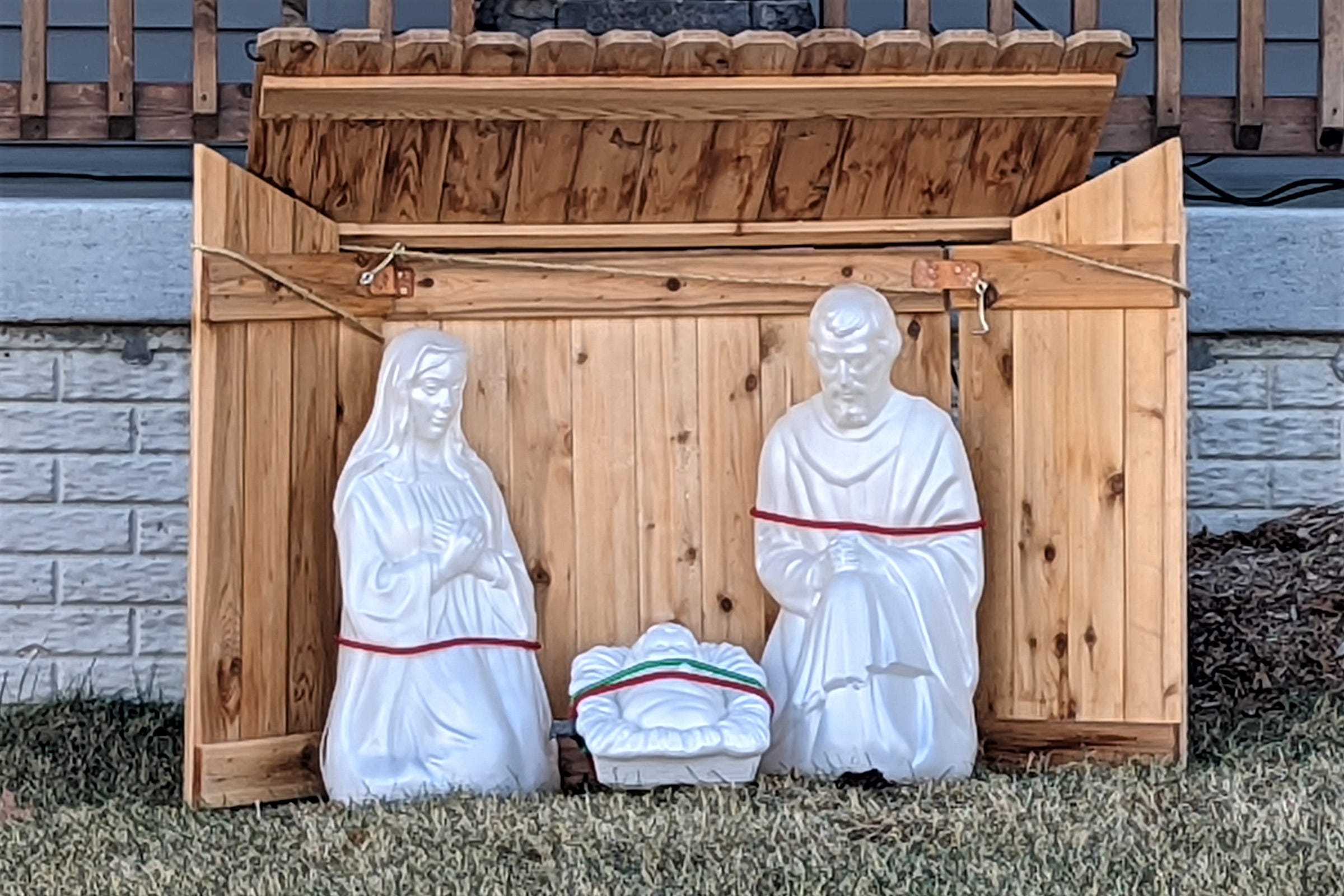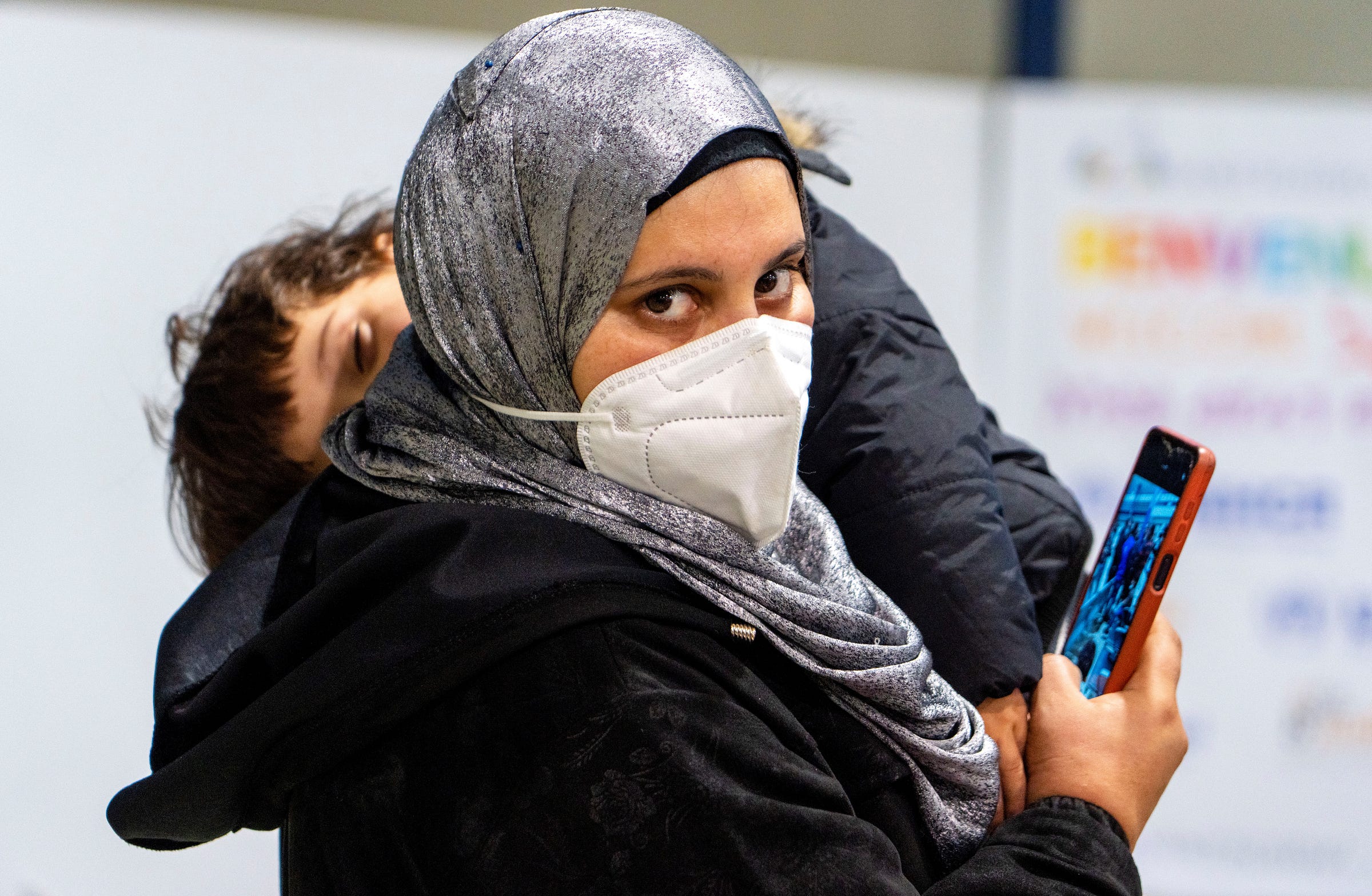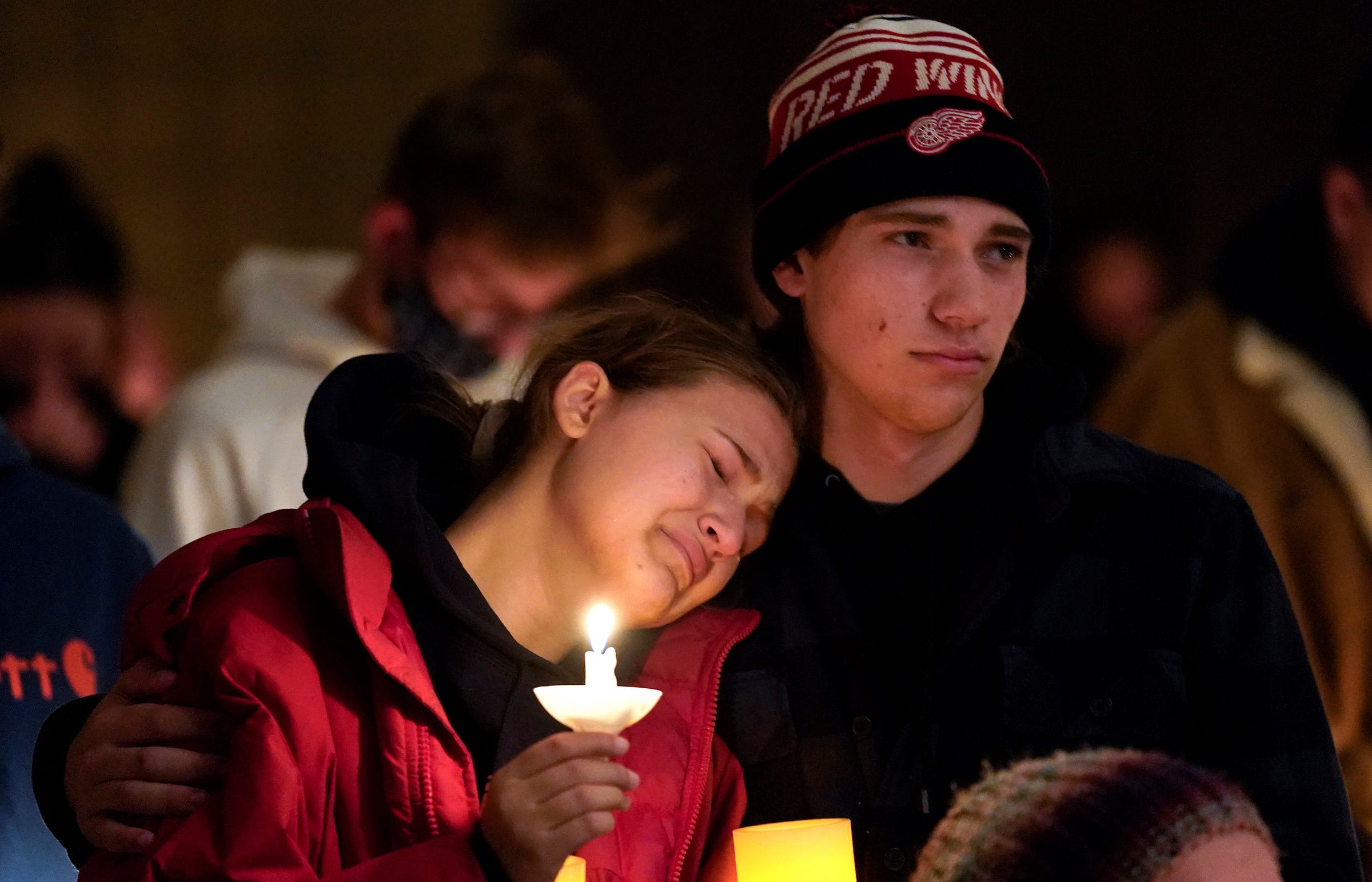Lessons from Unsettling Advent
People driving through Hanover County in Virginia earlier this month might have noticed an unusual campaign sign. The midterm elections ended, but then a new sign popped up a month later.
“Please Return Baby Jesus”
Robert Cooper created the sign after someone stole the Jesus figurine from his outdoor nativity. It’s actually the third year in a row that such a theft has occurred. So Cooper’s getting frustrated with Herod’s modern agents.
“People want to keep stealing our baby Jesus,” Cooper told a local reporter. “I don’t want to tie Jesus down or have a trap for him, but it’s a shame that people can’t seem to leave our baby Jesus alone for the past couple of years.”
Cooper’s not alone in his suffering that disrupts him from sleeping in heavenly peace. Each year, several only begotten sons are snatched from nativity scenes across the country (but still no crying he makes). Some are never seen again. The war on Christmas rages on!
While such unholy night thefts are obviously upsetting to the guardians of the nativities, the idea of tying down Jesus makes for quite a metaphor. How often do we essentially do that with our activities this time of year? As Cooper explained, “Christmas is about the birth of Jesus Christ, not Black Friday and Amazon Prime.”
That’s why last year we launched an unusual take on Advent in the midst of an unusual year. Feeling unsettled by the disruptions we had spent the year reporting on, we invited over 20 writers to join us in a quest to unsettle Advent with daily devotionals reflecting on how the news of the year helped us better understand the biblical stories. For our Unsettling Advent emails in 2021, writers considered Advent in a time of death/COVID, racial injustices, and insurrection. Among those who wrote last year were Sandhya Jha, Timothy Peoples, Starlette Thomas, Brad Lyons, David Gushee, and Amanda Tyler.
It was an experiment in rethinking this time of year. And we were pleased to see it went well. We heard from readers who found it meaningful (the best measure of success). The devotionals won an award from the Religion Communicators Council. And the effort led Chalice Press to ask us to write an Unsettling Lent book of devotionals for 2023 (that you can buy now and receive 5% off by using the code LENT23 before Christmas).

So we decided to once again unsettle Advent in light of our unsettling world. And we have been amazed by the devotionals from the more than 20 writers this year. They have helped us think in fresh ways about the old, old story we thought we knew so well. Writers have been reflecting on Advent in light of the war in Ukraine, the plight of refugees around the world, and the plague of gun violence in the United States.
We know that many of you have joined us on this journey. But in this issue of A Public Witness, we want to share some of what we’ve learned from Unsettling Advent this year. We hope these insights will be meaningful in these last few days before we celebrate the birth of the baby that people love to steal.
Advent Amid War
Few things disrupted the heavenly proclamation of “peace on Earth” this year like Russia’s deadly invasion of Ukraine. It’s not the kind of thing we want to think about at Christmas. We’d rather enjoy our eggnog and cookies by a crackling fire than think about those suffering in the cold as their homes have been bombed and the electricity knocked out. But if we look away, we’ll miss insights about Emmanuel, God with us.
“We are used to the fact that Christmas is a bright, joyful holiday. But not on the day Jesus came into the world. And also not for Ukrainians this year,” Ukrainian pastor Elisey Pronin wrote. “Mad Herod ordered to kill all the babies in Bethlehem. The whole city was drowned in tears. Mad Putin ordered to kill all of us. And that is why we cry for the killed Ukrainians, we cry for the Christians who are tortured and killed, we cry for the women who were raped by Russian soldiers, we cry for the children who died from Russian missiles, we cry for the destroyed cities.”
From their vantage point, the stories are no longer distant and unconnected to today.
“One of the thoughts that often comes to my mind now is that as Christians we tend to read the Bible as stories about what happened centuries ago as well as descriptions of events that will take place far in the future,” Ukrainian pastor Andre Khudyakov noted. “So we place ourselves in a ‘safe zone in the middle’ and we become like observers and commentators of biblical events from the past and those in the future and we never allow our minds to embrace its relevance to our lifetime.”
In addition to devotionals by Ukrainians, we also had reflections from peacemakers who traveled to the war-torn nation this year. Rose Marie Berger of Sojourners told a powerful real-life parable of people in Ukraine living out the Advent theme of waiting since it is “a season of fasting, of hunkering down, of stripping away what is known to prepare for what is unknown.” And Elijah Brown of the Baptist World Alliance recalled the faithfulness of Ukrainians still ministering amid the war.
“These are painful realities yet not unfamiliar to Immanuel, the Lord who journeys with us in the midst of violent pain,” he wrote.

While Advent promises good news to the poor, persecuted, and under attack, the same message rings a different note for the wealthy, powerful, and comfortable. “Peace on Earth” isn’t something the oppressors want to hear promised.
“Those who cling to political power receive this message as a threat,” author Jonathan Wilson-Hartgrove explained. “In Moscow, it’s a refutation of the aims of Putin’s ‘special military operation’ and the twisted nationalist religion that has been used to promote it.”
But even in war, faith remains.
“The prophetic promises of salvation are, for today’s believers, the same source of strength they were for those early ones,” Rev. Rob Schenck wrote. “Advent is a period of active waiting as the anticipation of those who came before us is recalled, awaiting their coming deliverer.”
Advent Amid Refugees
Advent arrived this year not only to war in Europe but to tens of millions of people forcibly displaced. Arguably, there’s no way to take the biblical story of Jesus’s birth and flight to Egypt more seriously than to focus on the plight of migrants, asylum seekers, and refugees.
“What consolation it must be to know that Christ was a refugee. That the Christ child knows what it is like to be born in a place not his own to a world that did not value his humanity and dignity. To know the grief and heaviness of what it is like to leave behind your family, your culture, and enter a space of liminality,” wrote Rev. Joy Martinez-Marshall, pastor of First Baptist Church in Lincoln, Nebraska.
“It is not enough to witness the pain of refugees, asylum seekers, and those left behind,” she continued. “I pray that this Advent, instead of hearts hardening and borders closing, we seek to find foolish hope in a child who knows the plight of a refugee. May we see Christ’s face in Texas detention centers and hear Emmanuel’s voice in the cries of Haitian babies.”
Rev. Jennifer Butler, founder in residence of Faith in Public Life, made a similar connection: “Jesus himself would be visited by Magi sent by Herod to reveal the Messiah’s whereabouts; then forced to flee, ironically, to Egypt, the original land of biblical oppression. Today the United States, like Egypt, must face its legacy of slavery to become a land of refuge rather than oppression.”
These writers insist on the Bible’s power to speak to present circumstances. Christians wanting to proclaim “joy to the world” because “the Lord has come” need to remind themselves they are celebrating a savior whose family was displaced by the threat of political violence and whose public ministry emphasized the welcome of strangers.

“The experiences and sorrows of displacement, persecution, and oppression are not overlooked or dismissed by scripture. In fact, the trials faced today by millions of people who have been forced from their homes are integral parts of the story and legacy of Jesus,” explained Church World Service President and CEO Rick Santos. “As we prepare for the celebration of Christmas, we must acknowledge the ways that ‘God with us’ is made manifest in our neighbors near and far.”
In expanding our awareness of and care for refugees and immigrants, we seek their security and flourishing. But we also find that our own lives can be transformed.
“As American Christians, we have spent millions of dollars sending missionaries to convert the world through the decades. However, when the world showed up at our door, we were quick to shut it,” exhorted Sarah Blackwell, one of Word&Way’s contributing writers. “Some of the greatest blessings I have received are the love and care of refugees. Once I got over my own need to be the one always giving, I learned that receiving the blessings of others, in whatever form they come in, is what knits families and communities together.”
In so many different and compelling ways, “keeping Christ in Christmas” means keeping the plight of migrant peoples front and center this holiday season.
Advent Amid Gun Violence
A school in Uvalde, Texas. A Walmart in Chesapeake, Virginia. A LGBTQIA+ nightclub in Colorado Springs, Colorado. These were three of the over 630 mass shootings — defined as an event where at least four people were shot — that have occurred in the U.S. in 2022 (so far). What does all this violence indicate about our readiness for Jesus to enter the world?
“The Prince of Peace may not be here yet, but the prophets are,” journalist Bekah McNeel reminded us. “As Isaiah and John the Baptist tell us, our job in Advent is to ‘prepare the way of the Lord, make straight paths for him.’ When violence charts a twisted path through our laws and ‘rights,’ we have not yet prepared the Way of the Lord.”
Perhaps we fail to prepare and perhaps we accept this violence because we’ve forgotten Jesus’s most basic teachings.
“It is a tragic reality that victims of gun violence are disproportionately people of color, women, LGBTQIA+ folks, and other marginalized groups,” lamented Rev. Adriene Thorne, the new senior pastor of Riverside Church in New York City. “Daring to act as if the last, the least, and the left out matter in our country requires the daily cultivation of fearless faith — leaning into the vision of a new world that is caring, loving, and safe. A world that is waiting for us to put down our guns and turn toward our neighbor — a requirement if we are to heal what gun violence has broken.”
Instead of co-creating that world with God, we have made guns into idols.
“The AR-15 has been claimed as the sword Christ will wield in the Apocalypse. It has been claimed as the Rod of Iron of Psalms and Revelation. It has been proclaimed the weapon of a good Christian,” explained historian Thomas Lecaque. “It is not a tool for revelation, but it is certainly a tool of Armageddon. It is a gun that ends worlds.”

This cultural devotion to weapons has prevented policymakers from acting to curb the violence that plagues our society.
Provocatively labeling the inaction as “government-sanctioned,” Lisa Sharon Harper asked: “How can this be?! How could we witness the carnage of Sandy Hook and pass no laws to fight that? How could we witness the deaths of the Emanuel 9 and leave legislative pens laying dormant on congressional desks? How could we bear witness to the slaughter at Parkland High and allow Uvalde’s murderer to riddle 21 more?”
With elected officials refusing to take action, churches must shoulder part of the burden to end the hate that motivates such carnage and the tragedies that result.
“As we gather together this Advent, let us not forget that the kin-dom is here but also not yet. I see the kin-dom in the support and immense love that the LGBTQIA+ community is holding for each other [after the mass shooting in Colorado Springs] — it’s unconditional; after all, they have had a lot of practice,” Michael Martin, the founder and executive director of RAWtools suggested. “We’ll realize our guns make better plowshares.”
Welcoming Love
Don’t misunderstand our intentions. While everything isn’t jolly and bright in these devotionals, that doesn’t leave us without hope. It’s only by being honest about the challenges facing our world that we can become clear-eyed about our need for God to be with us anew.
Unsettling Advent is about disturbing our comfortable assumptions and routines so that we might become more faithful followers of the Savior we herald as the true Prince of Peace. Rather than accept a tamed version of the gospel, we sought to find prophetic voices who could remind us about the radical implications of the Christian claim that “love came down” that first Christmas.
We pray these various voices will prepare your hearts not for the sentimental world of Hallmark movies but for the very real world in need of God’s redeeming love that we find in Jesus Christ.
As a public witness,
Brian Kaylor & Beau Underwood



